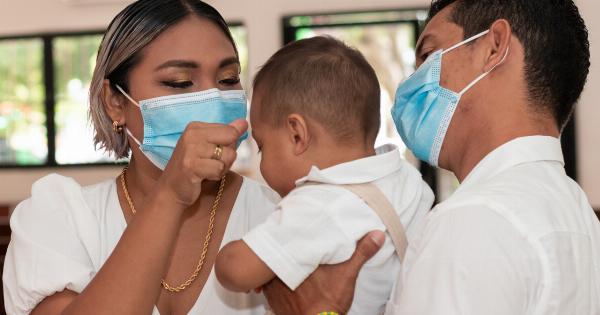Stomatitis is a common condition in infants which affects the mouth area. It is characterized by inflammation of the mouth, gums, tongue, and lips and can lead to discomfort, pain, and further irritation, resulting in poor feeding habits.
Stomatitis can be caused by various agents, including viruses, bacteria, fungi, and poor oral hygiene. If you notice any signs of stomatitis in your infant, it is crucial to consult with a pediatrician to ensure proper treatment. In this article, we will delve into the various causes, symptoms, and treatment options for stomatitis in infants.
Causes of Stomatitis in Infants
Stomatitis in infants can be caused by various factors, including:.
1. Viral Infections
The most common cause of stomatitis in infants is viral infections. The herpes simplex virus (HSV) is the primary culprit in infants, which is transmitted by contact with an infected person or surface.
It can lead to the development of cold sores or fever blisters, which are painful and can cause irritation and inflammation in the mouth area.
2. Bacterial Infections
Bacterial infections can also lead to the development of stomatitis in infants. The most common type of bacterial infection is streptococcus, which can cause a sore throat, fever, and inflammation.
Poor oral hygiene can also lead to bacterial growth and subsequent stomatitis.
3. Fungal Infections
Fungal infections, particularly candidiasis, can cause stomatitis in infants. Candidiasis is a type of yeast infection caused by candida, which can cause painful and itchy thrush in babies.
4. Trauma
Trauma to the oral cavity can also lead to the development of stomatitis in infants. This can include injury from teeth, accidental biting, or dental appliances.
Trauma can cause inflammation, irritation, and infection, leading to the development of stomatitis symptoms.
Symptoms of Stomatitis in Infants
The symptoms of stomatitis in infants can vary depending on the cause and severity of the condition. Some of the common symptoms include:.
1. Pain and Discomfort
Infants with stomatitis often experience pain, discomfort, and irritation in the mouth area. This can affect their feeding habits, leading to a decrease in appetite.
2. Inflammation and Redness
Inflammation and redness of the gums, tongue, and lips are common symptoms of stomatitis in infants. These symptoms can be caused by various factors, including viral or bacterial infections.
3. Blisters or Sores
Blisters or sores can also develop in the mouth area in infants with stomatitis. These can be painful and lead to further irritation and discomfort.
4. Fever and Fatigue
In some cases, stomatitis can lead to fever and fatigue in infants. This can be a sign of underlying infection and requires immediate medical attention.
Treatment Options for Stomatitis in Infants
Treatment for stomatitis in infants depends on the underlying cause. Some of the common treatment options include:.
1. Medications
Antiviral medications can be used to treat viral infections, while antibiotics are used for bacterial infections. Antifungal medications are administered in case of fungal infections.
Pain relievers and anti-inflammatory medications can also be prescribed for pain and discomfort.
2. Oral Hygiene
Good oral hygiene practices can help prevent stomatitis in infants. This includes regular cleaning of the mouth area and teeth, especially after feeding.
It is also essential to avoid sharing utensils, cups, or other items that come into contact with the mouth.
3. Specialized Care
In some cases, specialized care may be required for infants with severe stomatitis. This can involve hospitalization, intravenous fluids, and specialized feeding options.
Conclusion
Stomatitis is a common condition in infants that can cause pain, discomfort and lead to poor feeding habits.
While it can be caused by various agents, including viruses, bacteria, fungi, and poor oral hygiene, it can be treated effectively through medication, oral hygiene, and specialized care. If you notice any signs of stomatitis in your infant, it is crucial to consult with a pediatrician immediately to ensure the best possible treatment and outcome.






























